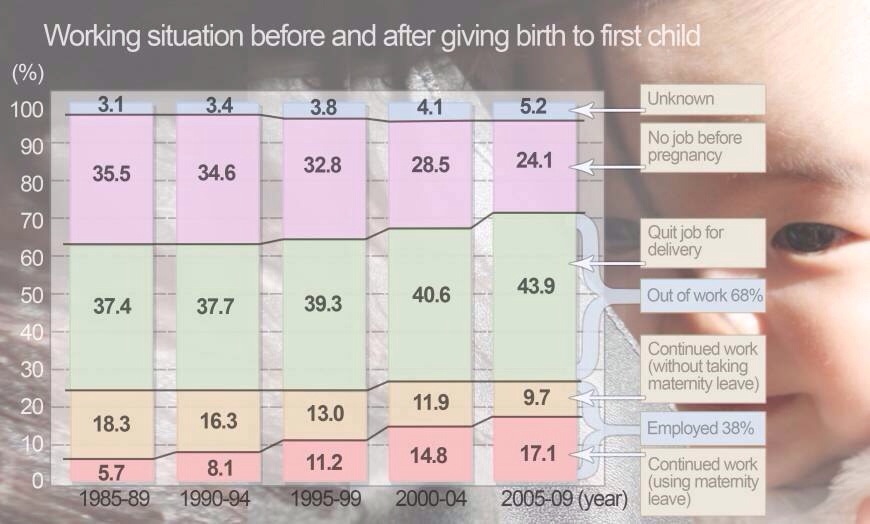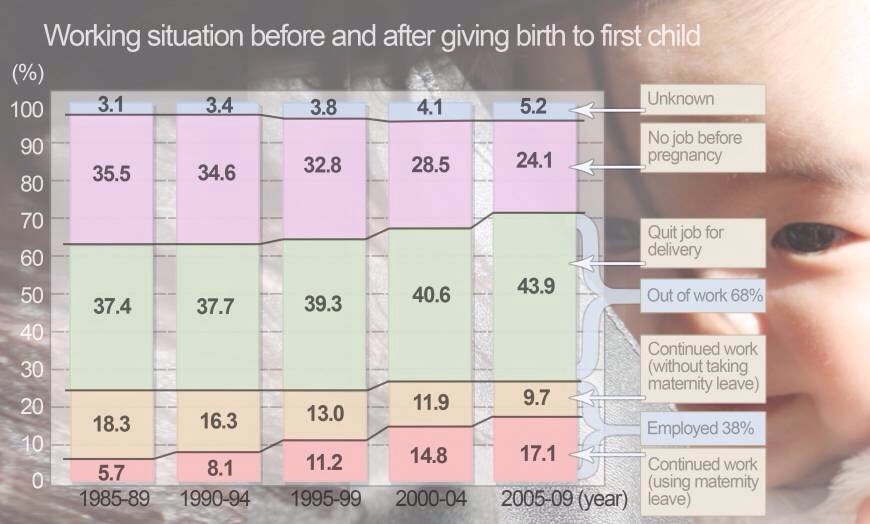
BY HIFUMI OKUNUKI
First of all, I would like to wish a happy new year to all the readers of Labor Pains. While labor news has generally been a gloomy topic of late, it is my hope that this year will bring brighter things for me to write about.
As I draft this first column of 2014, I am sitting in front of my computer at 10 at night in my apartment in downtown Tokyo. The suddenly vacated metropolis is blanketed in an uncanny hush. Hardly any cars can be seen passing by. In the great New Year’s exodus, many of the inhabitants of Tokyo have returned to their various hometowns across Japan, leaving the city in a temporary state of near-abandonment.
I can’t say that I’ve ever disliked this vacated Tokyo. In fact, I enjoy the calm atmosphere. Watching “Kohaku” (an annual pop music contest televised on New Year’s Eve), chatting about this and that, eatingtoshikoshi soba (a noodle dish with tempura served on Dec. 31) — this kind of traditional New Year’s Eve suits me just fine. And, even if I were to absentmindedly forget the tempura for the soba, I wouldn’t have to worry because, in this day and age, most supermarkets remain open all through the holiday season. It is no longer rare to see a supermarket open its doors even on New Year’s Day.
It wasn’t always like this. Back in my day, we took it for granted that for the period from the evening of Dec. 31 to Jan. 3, nearly everything would be shuttered up. On the morning of New Year’s Eve, stores would be scenes of chaos, packed with shoppers frantically stocking up on supplies to last the week. My mother used to take my sister and me along as well, to help carry bags for her, and both of us would barely be able to hold all the shopping. For us kids, the pressure of knowing that if we forgot something we would have to do without it over the holidays brought with it a strange sense of excitement.
But today’s young people have probably never experienced all that. Convenience stores that open 365 days a year, 24 hours a day now dot the Japanese landscape, and supermarkets are closely following with ever longer business hours, to the point that the end of the year no longer feels like such a special time.
I sometimes wonder if this new “convenience culture” is a good thing. Of course, from the standpoint of consumers, being able to buy anything you need any time provides a sense of security, and this convenience could be considered to be something positive. But at the same time, if we look at it from the workers’ perspective, that convenience comes at the direct cost of more labor through the holiday period. Convenience stores, supermarkets, DVD rental shops, family and fast food restaurants,izakaya, karaoke parlors — all kinds of establishments remain garishly and noisily open for business in spite of the New Year’s holiday.
The people working at these places have to sacrifice their private lives for the sake of their jobs. Of course, you could argue that the people working at these stores freely choose to do so. However, I doubt that most of the people working in these jobs are in a position to make very “free” choices. Rather, I suspect that they are cajoled or even coerced into taking these shifts. I can’t help but have misgivings about the idea of forcing people into situations where they have to make personal sacrifices for the sake of customer convenience.
For contrast, let’s look at how the same issue is handled in another country. In Germany in 1900, a law called the Shop Closing Act (Ladenschlussgesetz) was passed that remains in force to this day. Under this law, shops are in principle not allowed to open outside the hours of 6 a.m.-8 p.m. on Mondays to Saturdays — or at all on Sundays and national holidays. While airports and train stations are exempt and many other revisions have followed over the years, gradually resulting in the law being relaxed significantly, the Shop Closing Law continues to regulate business hours in Germany.
The motivations behind this act were threefold. First, for religious reasons, the government wanted to preserve Sunday as the Christian Sabbath. Second, the law’s proponents hoped to protect the livelihoods of “all workers.” They feared that longer business hours would result in employees being forced to work longer hours to match. Third, the government wanted to protect small businesses. In other words, it worried that with unregulated business hours, large companies that could afford to extend business hours would gradually rob smaller companies of their customers and thereby threaten their very existence.
As I’ve written about over and over in my Labor Pains articles, overwork is one of the most serious social ills afflicting Japan today. About 5 million people — 10 percent of Japan’s workforce — toil more than 60 hours a week, according to a 2012 study by the Ministry of Internal Affairs and Communications.
Theoretically, Article 32 of the Labor Standards Law gives workers the protection of the eight-hour day and the 40-hour week, and bans work above those limits. However, exceptions to this law are often recognized. While so-called 36 Agreements (a kind of deal struck between workers and management about overtime, named after Article 36 of the same law) are required for overtime to be permitted, in practice many companies are able to extract unpaid overtime from their workers without concluding any such deal.
On top of that, in an investigation published on Dec. 30, the Tokyo Shimbun found 1,343 cases of companies that incorporated “fixed overtime pay” lump sums into regular wages and then forced workers to work past the hours originally set in their contracts or, alternatively, did not even give a clear figure on how much overtime was being paid for.
Furthermore, under the Labor Standards Act, provisions exist allowing for flexible arrangements such as irregular working hours, flex-time, work outside the workplace and discretionary labor. (Under the discretionary labor system, employer and employee are supposed to decide between them how long a job should take, with the employer then paying the worker for those hours regardless of how many hours are actually worked.) In other words, the law that is supposed to protect the health and livelihood of workers in Japan is riddled with loopholes, and the country is sadly filled with employers willing to exploit these loopholes and overwork their employees.
So once again this year, I have ended up returning to a gloomy theme. However, this New Year’s Day, I dare to dream of how different things might be if we were to look at the people working at our convenience stores, supermarkets and restaurants not from the perspective of consumers blindly seeking convenience, but, like the framers of Germany’s Shop Closing Act, as people who believe that all workers should be protected.
In that spirit, and not out of nostalgia, I suggest that we work to bring back the old, shuttered-up New Year’s Day.
Hifumi Okunuki teaches at Sagami Women’s University and serves as executive president of Tozen Union (Zenkoku Ippan Tokyo General Union). She can be reached at tozen.okunuki@gmail.com. On the second Thursday of each month, Hifumi looks at cases in Japan’s legal history to illustrate important principles in labor law.
Originally published here:
http://www.japantimes.co.jp/community/2014/01/08/general/restore-the-shuttered-up-new-years-of-yore/#.UtdzeHnCWwe








